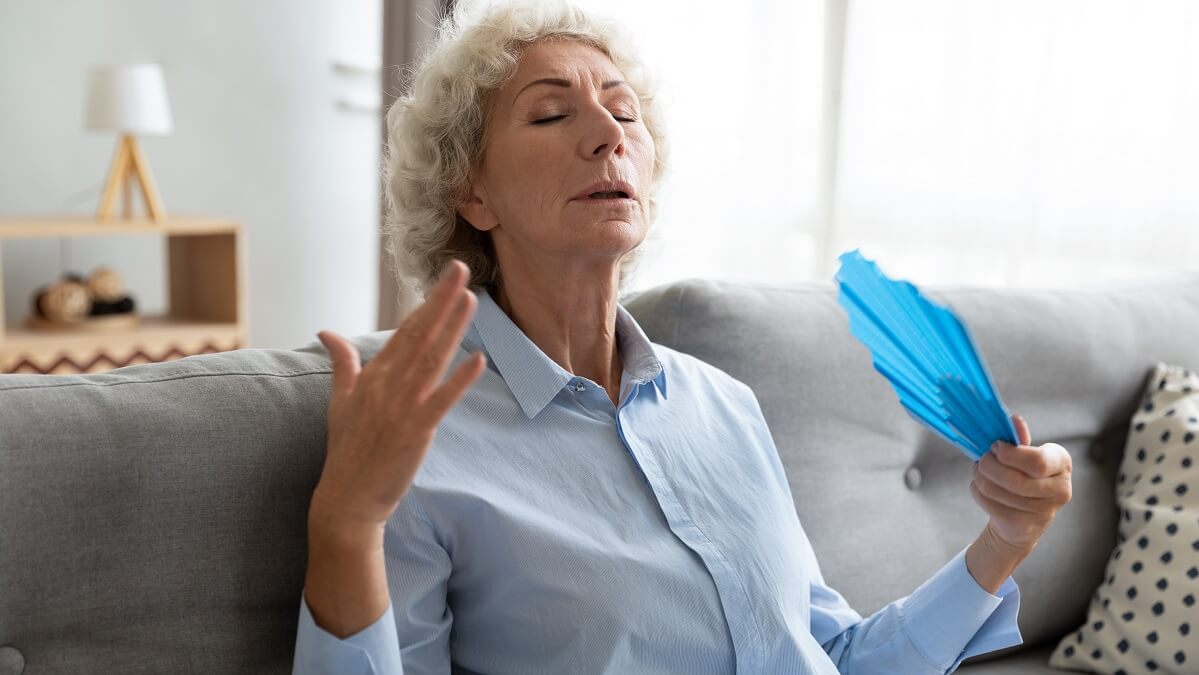Hormones are chemical messengers that help to control your body’s processes. They are made in the endocrine glands and travel around the body in the bloodstream. Hormones control many different things, including metabolism, growth, reproduction, and mood.
Some hormone levels fluctuate throughout your lifetime and may just be the result of natural ageing. But medications and health conditions can also cause your hormone levels to change.
Their essential role means that even slight hormonal imbalances can cause side-effects throughout the body.
If you think you may have a hormone imbalance, it’s important to talk to your doctor who can order tests to check your hormone levels.
Here are nine signs you may have a hormone imbalance.
Appetite changes and weight gain
If you’re struggling to keep your weight down or you’re always feeling hungry, you may have a hormone imbalance. Hormones play a big role in regulating your appetite and weight, so an imbalance can lead to weight gain.
There are a few different hormones that can cause weight gain when they’re out of balance. One is ghrelin, the ‘hunger hormone’. Ghrelin signals to your brain that you’re hungry and need to eat. So, if you have too much ghrelin, you’re going to feel hungrier than usual and may end up eating more.
Another hormone that can cause weight gain is leptin. Leptin is a hormone that tells your brain when you’ve had enough to eat. So, if you have too little leptin, you may not feel full after eating and may end up eating more.
Sudden weight loss
Your thyroid is a butterfly-shaped gland that sits at the base of your neck. It’s an endocrine gland, which means it secretes hormones into your bloodstream. These hormones regulate your metabolism – the rate at which your body turns food into energy.
If your thyroid is producing too many hormones, it’s called hyperthyroidism or an overactive thyroid. Symptoms include unexpected weight loss, rapid or irregular heartbeat, sweating and irritability, although older people often experience no symptoms.
Read: Is your thyroid out of whack?
Disturbed sleep
If you’re waking frequently throughout the night or don’t feel rested when you wake up in the morning, your hormones could be the cause.
Melatonin is a hormone that your brain produces in response to darkness and it is responsible for helping to regulate the body’s sleep-wake cycle. Being exposed to light at night can block melatonin production and cause restless sleep.
Other hormones, such as cortisol, can also affect sleep. Cortisol is a stress hormone that is released in response to situations that are perceived as threatening or stressful. When cortisol levels are high, it can be more difficult to fall asleep and stay asleep.
Gut issues
Hormones play an important role when it comes to the population and function of the bacteria in your gut. Hormones such as oestrogen and progesterone can affect digestion and overall gut health. Your body producing an excess or not enough of these hormones can lead to symptoms such as bloating, constipation, diarrhoea, or nausea.
Loss of libido
Low testosterone, oestrogen, and progesterone are all associated with a decreased sex drive in both men and women. This is especially common after age 50 when oestrogen and testosterone production typically decline.
Read: Most common concerns about having sex over 50
Mood swings and depression
Researchers think drops in hormones or fast changes in their levels can cause moodiness and the blues. Oestrogen affects key brain chemicals such as serotonin, dopamine, and norepinephrine. But other hormones that travel the same paths as neurotransmitters also play a part in how you feel.
Pimples and acne
Hormonal acne is a type of acne that is caused by changes in the body’s hormone levels. It can occur at any age and is usually characterised by deep, cystic pimples that are difficult to treat.
Androgens are usually thought of as male hormones, but the female body naturally produces them too. An excess of androgens can cause your oil glands to overwork. Androgens also affect the skin cells in and around your hair follicles. Both can lead to clogged pores and pimples.
Dry skin
Dry skin is a common side-effect of a hormone imbalance, especially in women. Ageing, menopause and a woman’s menstrual cycle can all be linked to the production of the hormone oestrogen. If oestrogen levels are low, this can lead to dry skin. A thyroid issue could also be to blame.
Read: Suffering with dry skin? Baobab oil may be the answer
Fatigue
Everyone gets tired sometimes but prolonged fatigue, or feeling fatigued after adequate rest, are common signs of a hormone imbalance.
If you feel you are taking care of yourself but are still exhausted or just can’t seem to get back to your best, consider asking your doctor for a comprehensive evaluation of your hormone levels.
Excess progesterone production can make you tired. And if your thyroid makes too little thyroid hormone, it can sap your energy.
Have you ever had a hormone imbalance? Why not share your thoughts in the comments section below?
Disclaimer: This article contains general information about health issues and is not advice. For health advice, consult your medical practitioner.

